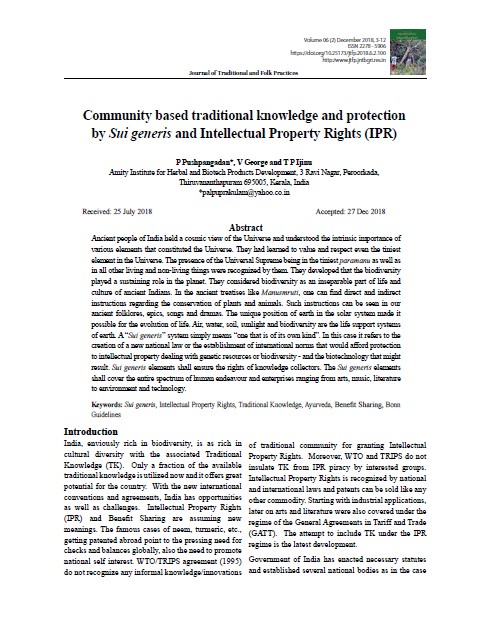Community based traditional knowledge and protection by Sui generis and Intellectual Property Rights (IPR)
Keywords:
Sui generis, Intellectual Property Rights, Traditional Knowledge, Ayurveda, Benefit sharing, Bonn GuidelinesAbstract
Ancient people of India held a cosmic view of the Universe and understood the intrinsic importance of various elements that constituted the Universe. They had learned to value and respect even the tiniest element in the Universe. The presence of the Universal Supreme being in the tiniest paramanu as well as in all other living and non-living things were recognized by them. They developed that the biodiversity played a sustaining role in the planet. They considered biodiversity as an inseparable part of life and culture of ancient Indians. In the ancient treatises like Manusmruti, one can find direct and indirect instructions regarding the conservation of plants and animals. Such instructions can be seen in our ancient folklores, epics, songs and dramas. The unique position of earth in the solar system made it possible for the evolution of life. Air, water, soil, sunlight and biodiversity are the life support systems of earth. A “sui generis” system simply means “one that is of its own kind”. In this case it refers to the creation of a new national law or the establishment of international norms that would afford protection to intellectual property dealing with genetic resources or biodiversity - and the biotechnology that might result. Sui generis elements shall ensure the rights of knowledge collectors. The Sui generis elements shall cover the entire spectrum of human endeavour and enterprises ranging from arts, music, literature to environment and technology.


